Affiliate links on Android Authority may earn us a commission. Learn more.
Garmin vívoactive 3 and vívomove HR hands on review
September 2, 2017
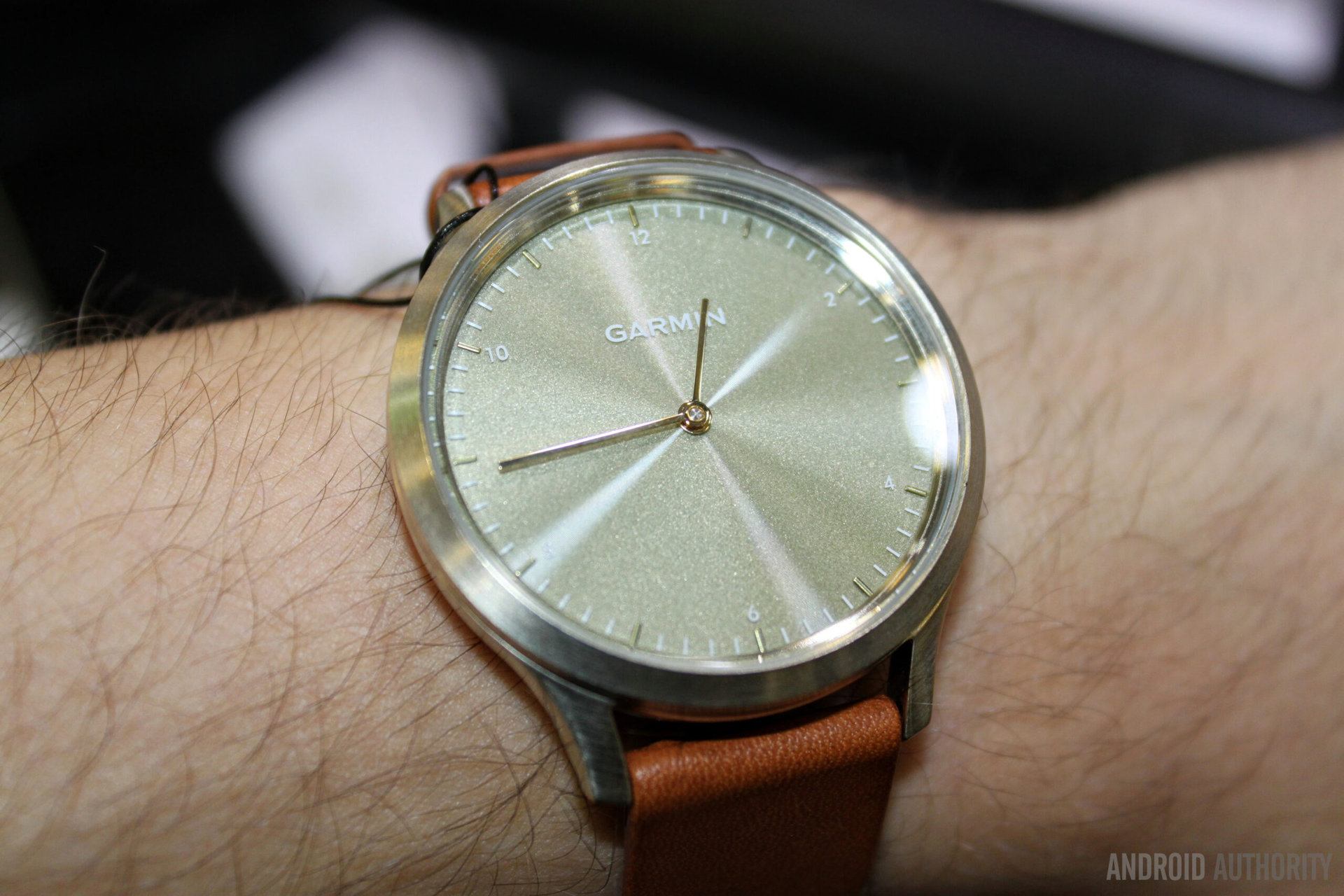
IFA 2017 is here and manufacturers have been holding press events for the past several days to show off their latest and greatest gadgets. GPS tech and wearable manufacturer Garmin is among them, taking to the stage a couple of days ago to introduce three new wearable products.
These arrived in the form of the vívoactive 3, its flagship, feature-packed watch that comes with its all-new mobile payments system, the vívomove HR, a stylish, hybrid smartwatch, and the vívo sport, the company’s latest fitness band (read an overview of the three devices here).
I had the opportunity to spend some time with the vívoactive 3 and vívomove HR during Garmin’s press event to learn a little more about them — here’s what you need to know.
vívoactive 3
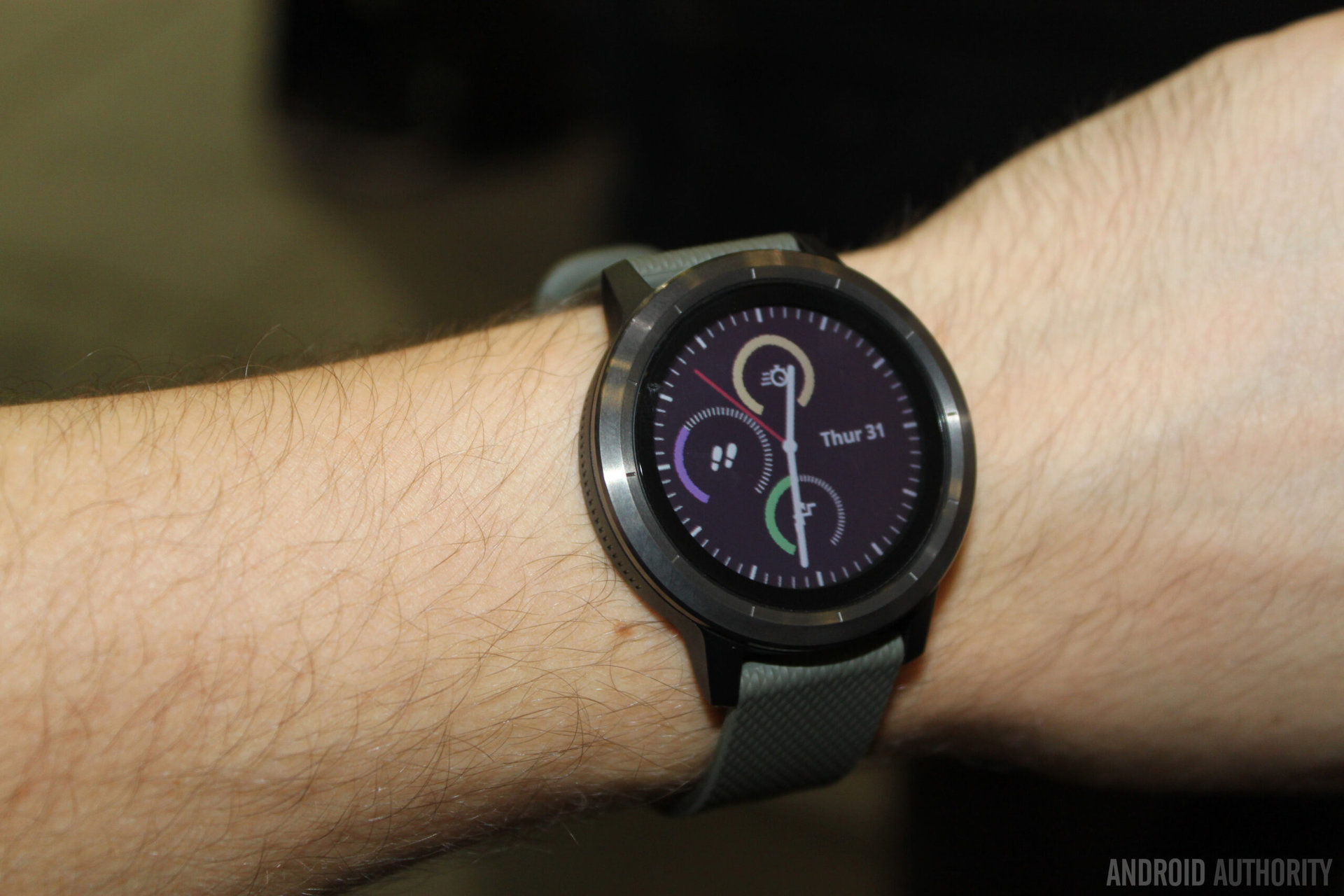
The vívoactive 3 is a feature-packed sports watch aimed at those looking to lead a healthy lifestyle. It runs on Garmin’s own custom software, though it’s compatible with Android and iOS phones for advanced features like notification syncing (for emails, messages, missed calls etc). The device makes use of stainless steel design, circular watch face, and always-on Garmin Chroma display, said to offer good visibility even in strong outdoor light.
As you might expect, the vívoactive 3 puts a large focus on fitness: it comes with more than 15 sports apps covering a range of activities, with all-new profiles designed for things like yoga and elliptical exercises, and will allow you to download custom exercises through the Garmin IQ Connect platform and create your own. The vívoactive 3 can also keep track of reps and sets and, of course, will survive in both the pool and the shower.
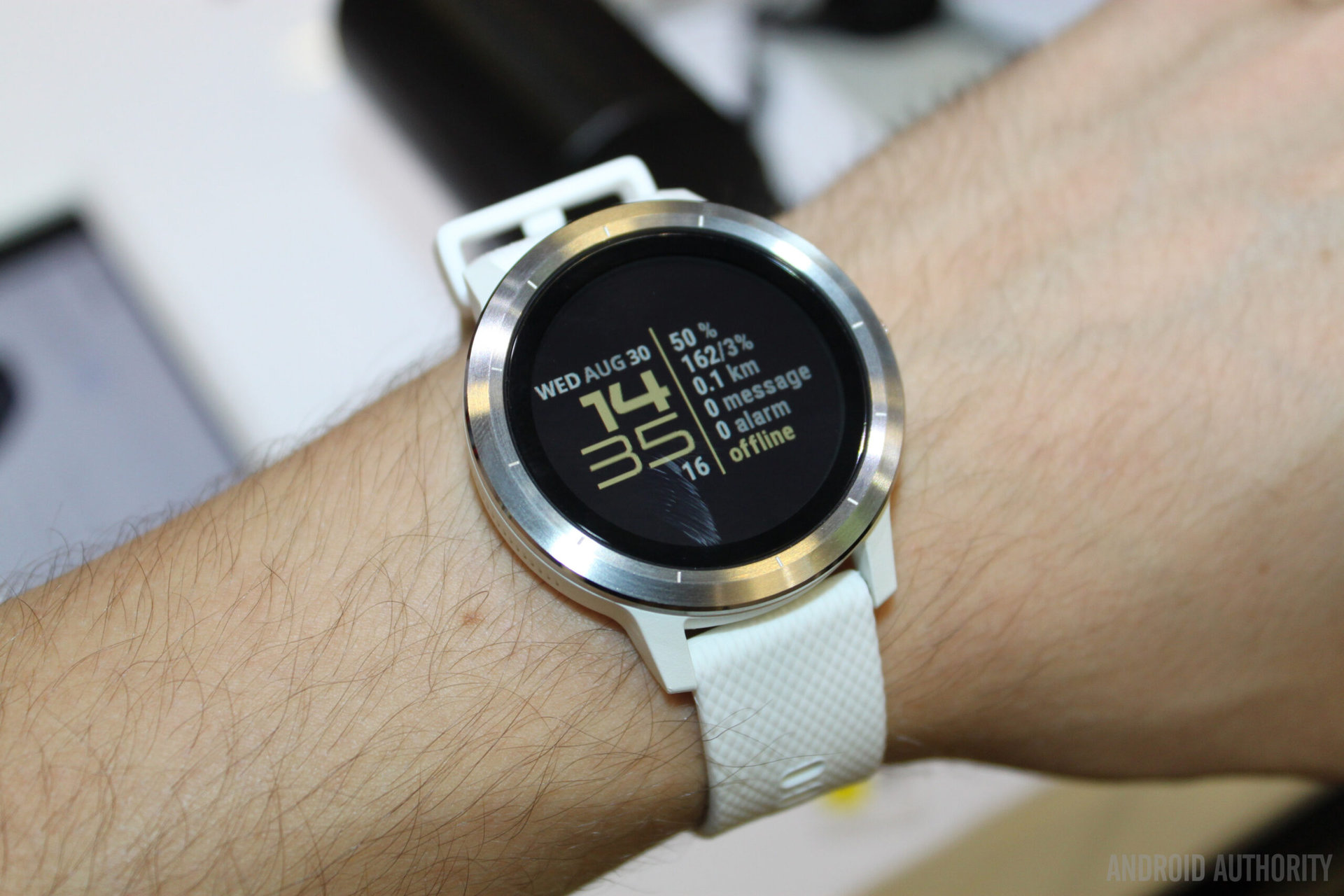
Garmin’s fitness tracking features are helped by its proprietary “Elevate” wristband, which can monitor things like VO2 Max and heart rate variability (HRV). This, according to Garmin, can even assess your stress levels, but it might take a bit of setting up; it generally suggested that my stress levels were low though, while at a busy show like IFA, I can assure you that I was feeling anything but relaxed.
Garmin also included a new navigation control in its watch known as “Side Swipe.” This is employed instead of a dedicated button or dial to make navigating menus a little more intuitive. While it worked well enough at the show, for anybody familiar with other smartwatch products, it’s not a big deal — it literally just means swiping the watch face. I can scarcely believe Garmin trademarked it to be honest.
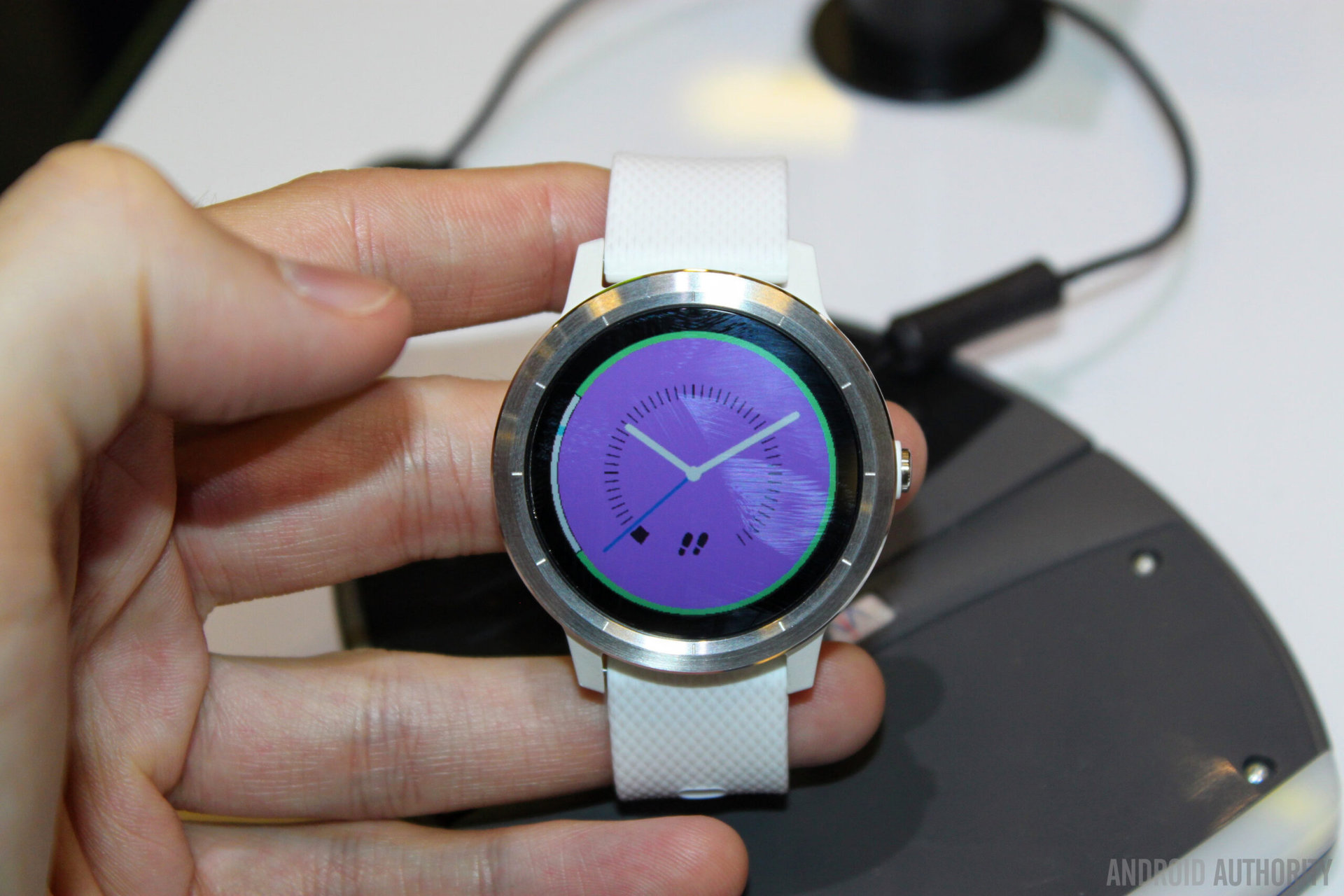
Garmin also says that the watch is suitable for scrolling with either a finger or a thumb, which strikes me as another minor addition, but maybe some people are particularly precious about that kind of functionality.
As for the battery life, Garmin promises up to seven days when using the device in smartwatch mode, and it’s said to survive up to 13 hours while making use of GPS tracking (the specific battery size hasn’t been discussed). These are impressive numbers as far as wearables are concerned and destroy what Android Wear and Apple Watch devices deliver.
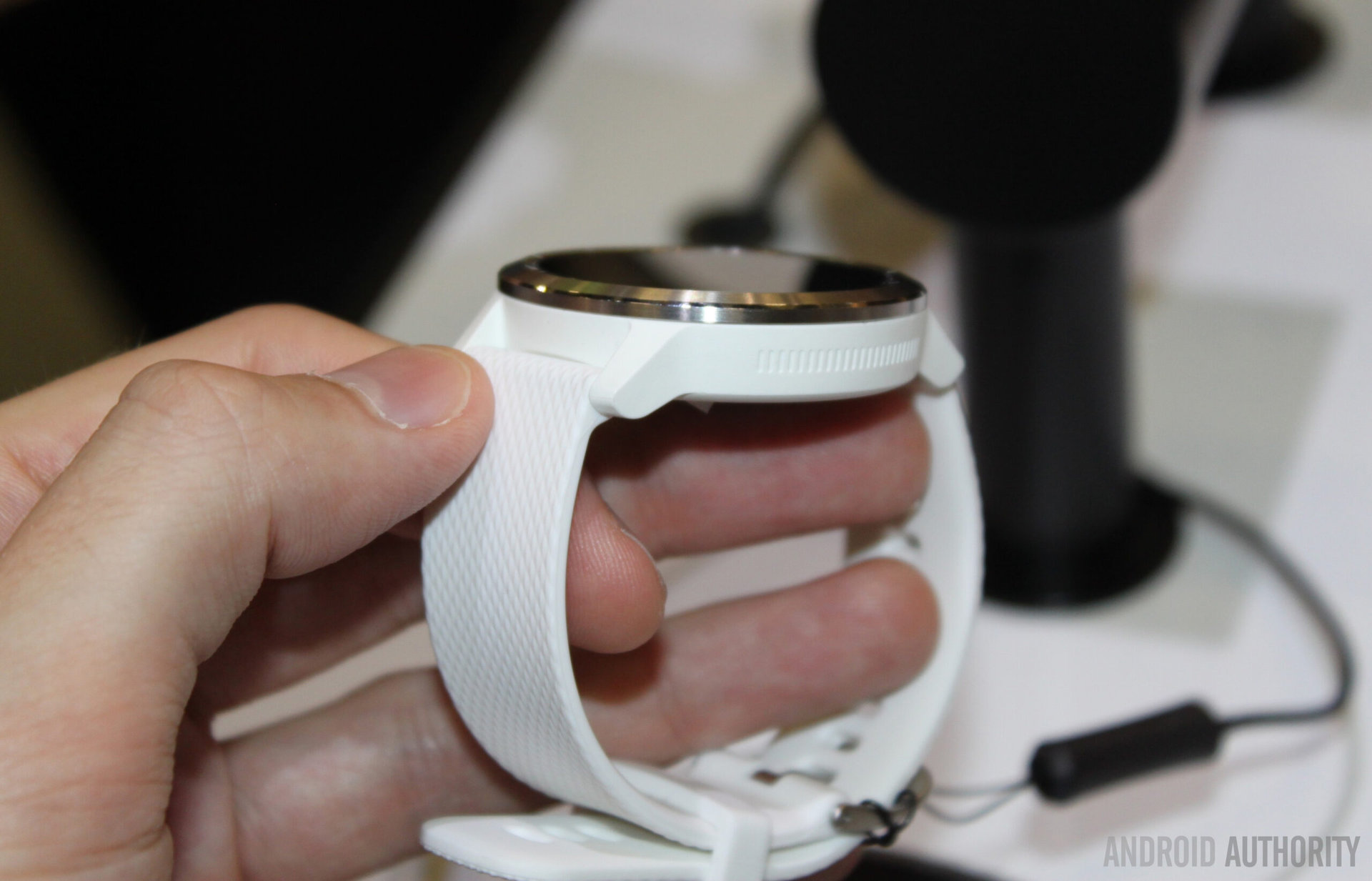
Further, you can customize the vívoactive 3 with thousands of watch faces, widgets and other apps downloadable from Garmin’s dedicated store.
The vívoactive 3 isn’t particularly exciting in the looks department — the gray unit with gray wrist strap that I saw at the event was particularly dull — but the rubberized band was comfortable, as you would hope. It’s also a comparatively thick watch (11.7 mm), especially when compared to non-smart fitness trackers, but not to the point of being a distraction.
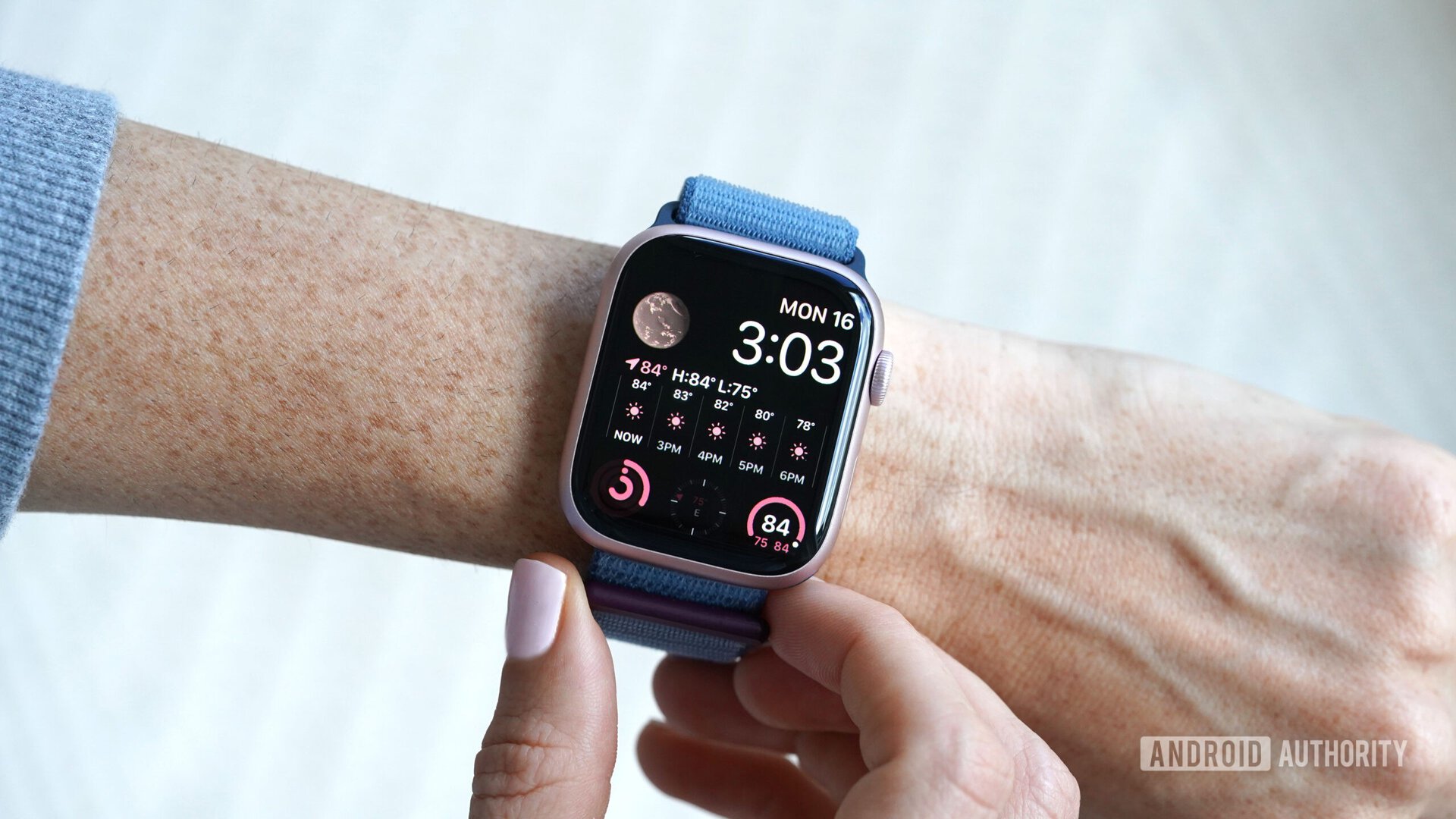
As you can no doubt tell from the pictures, the vívoactive 3 is prone to fingerprint smudges. This kind of thing can happen at an event with fifty or so people playing with a device in the space of half an hour, but smudges were more apparent on this watch than the other Garmin products I played with.
Alongside the vívoactive 3, Garmin has introduced its own mobile payments service Garmen Pay. This is based on startup Fit Pay‘s contactless payments system for wearables, supporting Visa and Mastercard debit cards from a number of major US banks. These cards can be registered with the Garmin Pay wallet to allow contactless payments “pretty much wherever contactless payments are accepted,” says Garmin vice president of worldwide sales Dan Bartel.
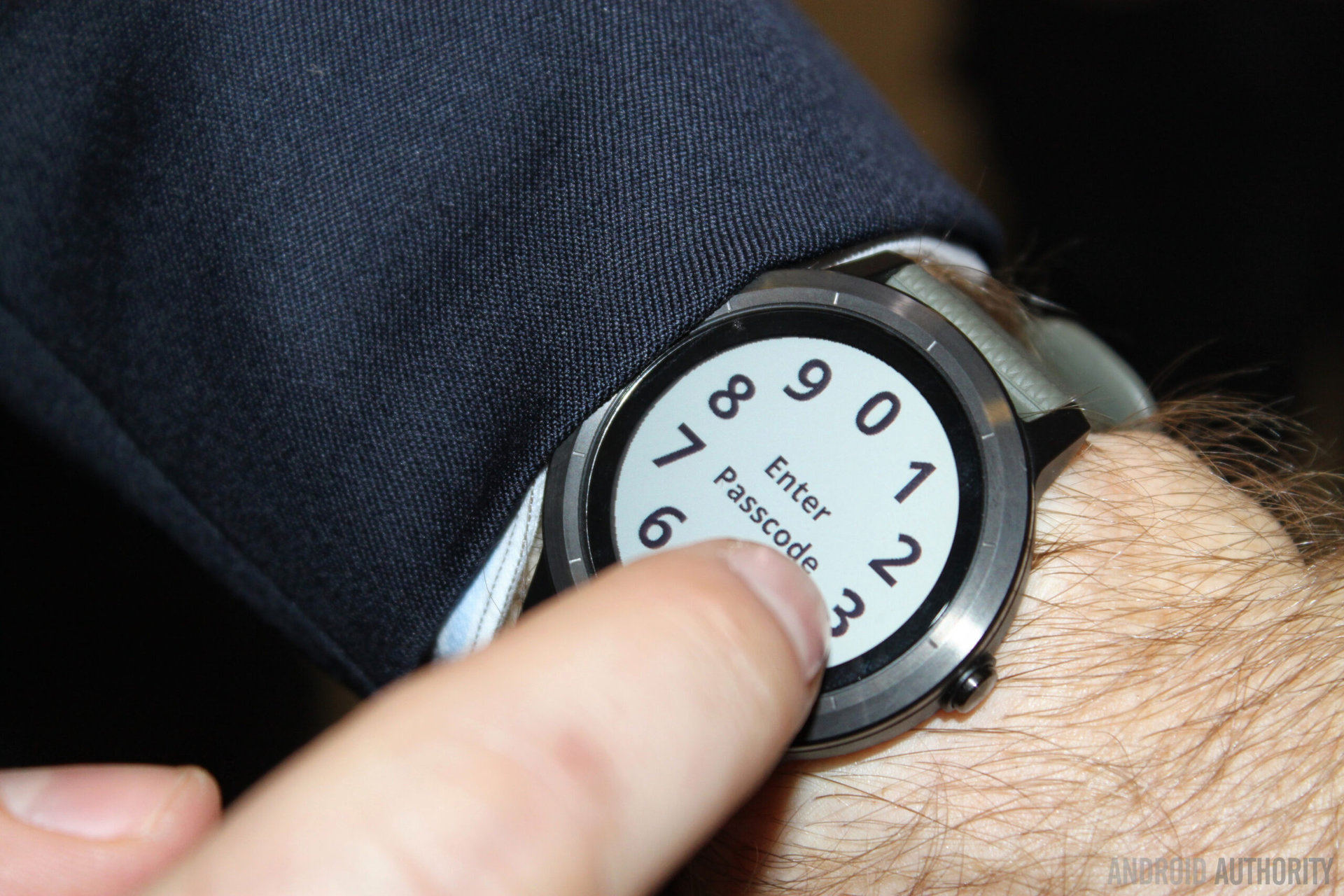
Fit Pay aims to deliver a wearable payment solution that can be easily incorporated into existing smart devices. And it makes sense: rather than every company trying to build its own platform (which many OEM’s are already doing), this could save manufacturers a lot of investment time and resources.
As the company behind the failed contactless wrist strap payment Kickstarter, though, Fit Pay still has to really prove itself.
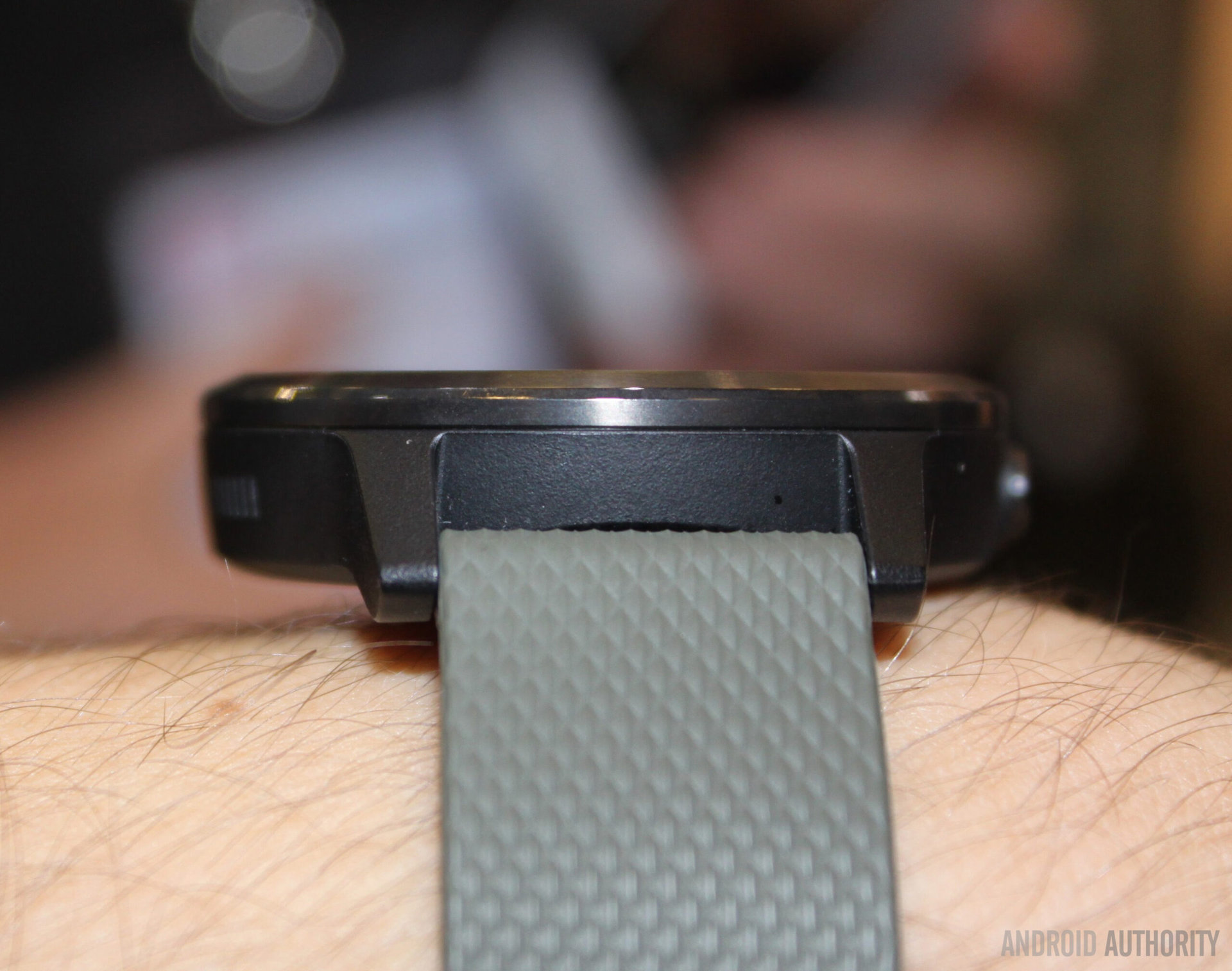
In a short demo at the press area, the payments system looked simple enough; after tapping the vívoactive 3 on a compatible terminal, a press rep entered a private code to process a payment. The rep told me that you won’t have to enter this code again to process other payments within an hour, unless you remove the watch.
Contactless payment systems are well placed on fitness trackers because people generally don’t carry a lot of money with them when they’re working out. How Garmin’s solution will stand up against other mobile payments systems, however, we don’t yet know.
The vívoactive 3 will be available in three colors at launch, though Garmin didn’t say when that would be, and these are: black/stainless, white/stainless and black/slate. The stainless steel watches will have a suggested retail price of $299.99, while the slate unit will come in at $329.99. Various bands will be available separately too.
If you’re interested, you can pre-order the vívoactive 3 at Best Buy here.
vívomove HR
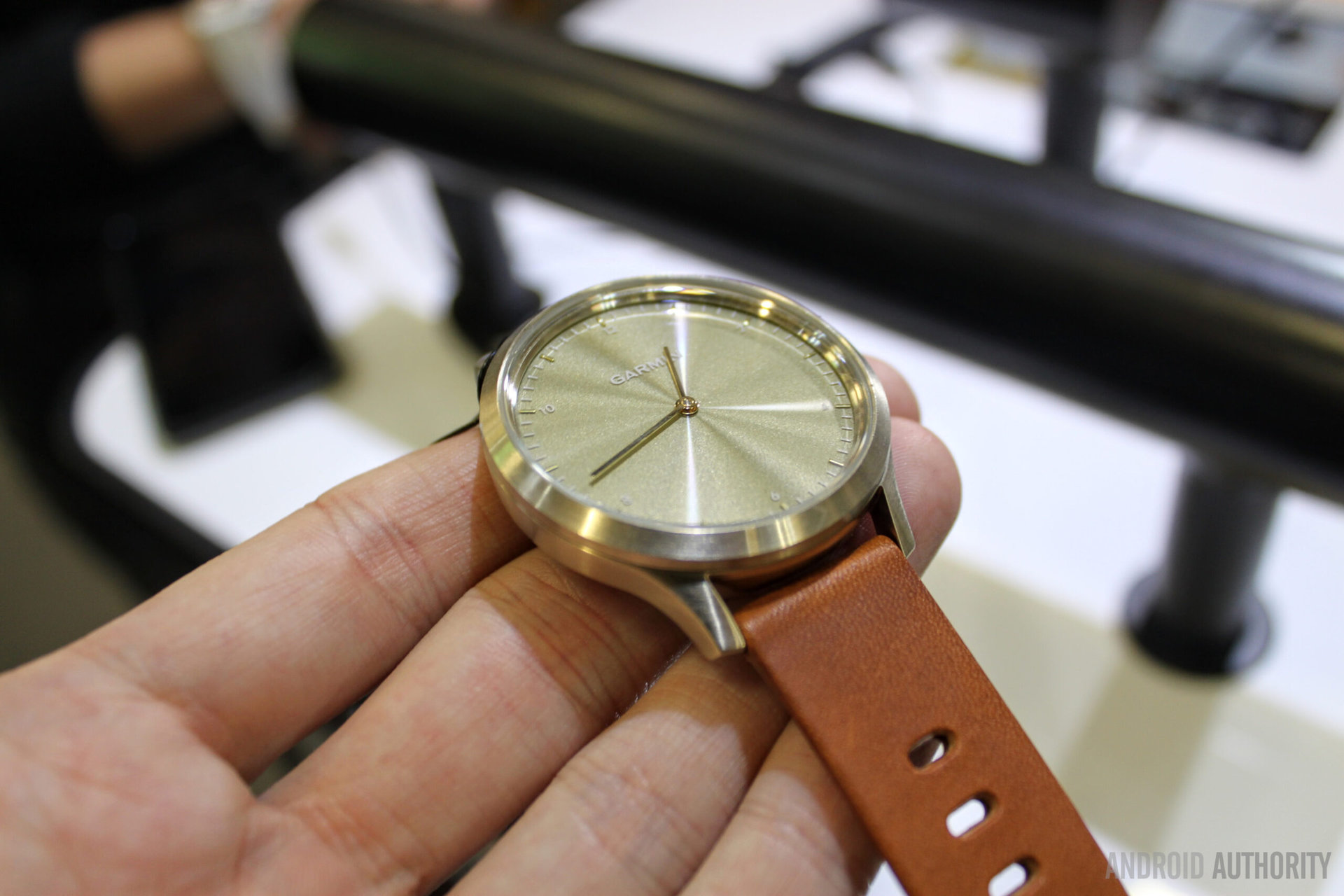
The vívomove HR is a less feature-heavy product compared to the vívoactive 3, sitting somewhere between a fitness device and a fashion product. It still includes some fitness tracking features, the Elevate wrist heart monitor, smart notifications, and a touchscreen display (housed in the lower half of the screen), but you won’t find Garmin Pay, GPS or a compass on there.
So, it’s a lighter fitness product, but it is still good to go showering and swimming with, and it should best the vívoactive 3 in battery life too, offering up to five days of standby time in the smartwatch mode (with smart features) or two weeks when used like a normal watch.
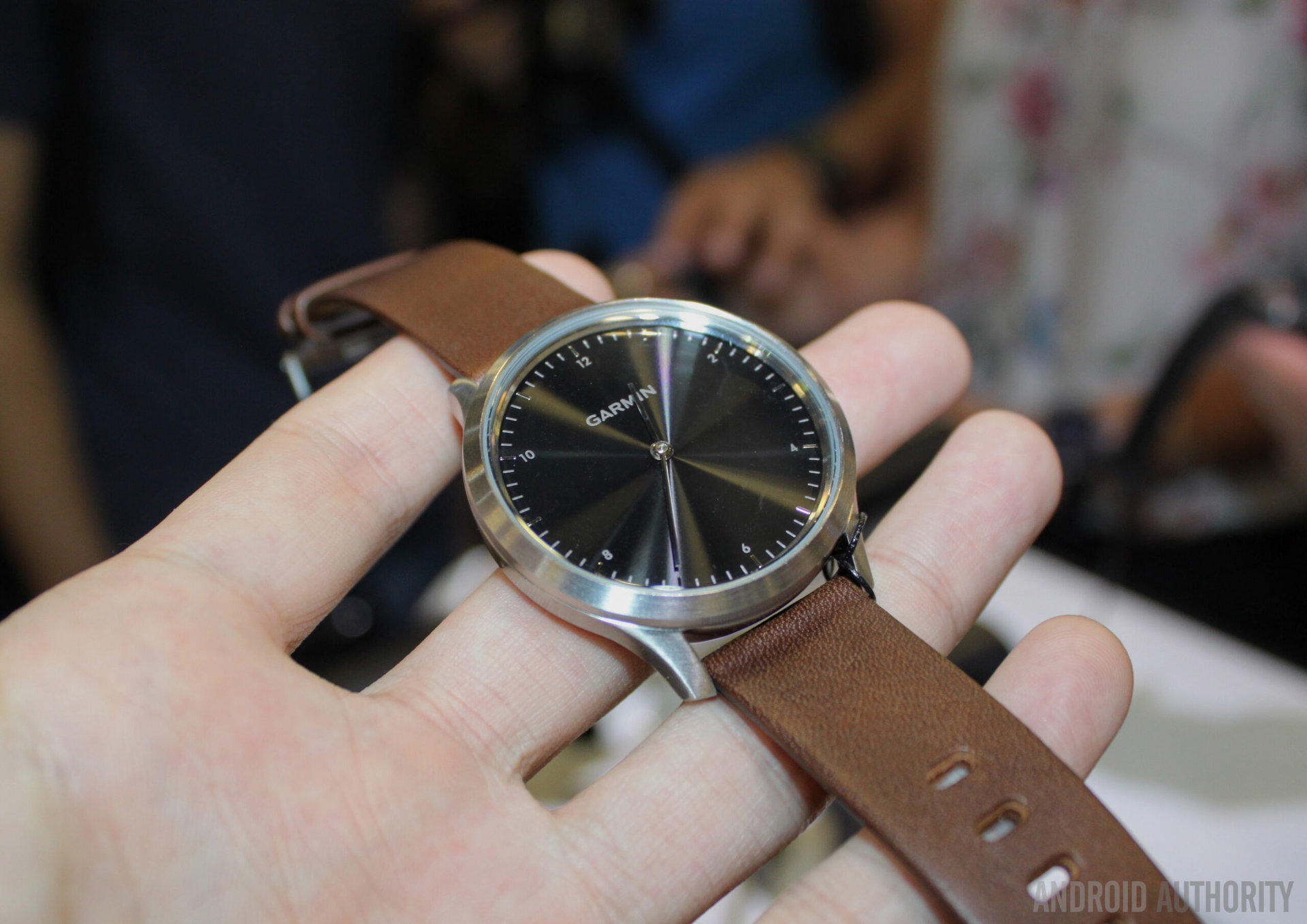
What it’s lacking in internal features, the vívomove HR makes up for in its outward appearance. This is a good-looking watch, the light gold variant with the brown leather strap I got my hands on at the show looked particularly suave, and it’s one of the few smartwatches that look attractive even when compared to traditional analog watches. While the vívoactive 3 will, by all accounts, yield more interesting usability options when it’s explored more in-depth, it was easier to fall in love with the vívomove HR upon first seeing it on the trade show floor.
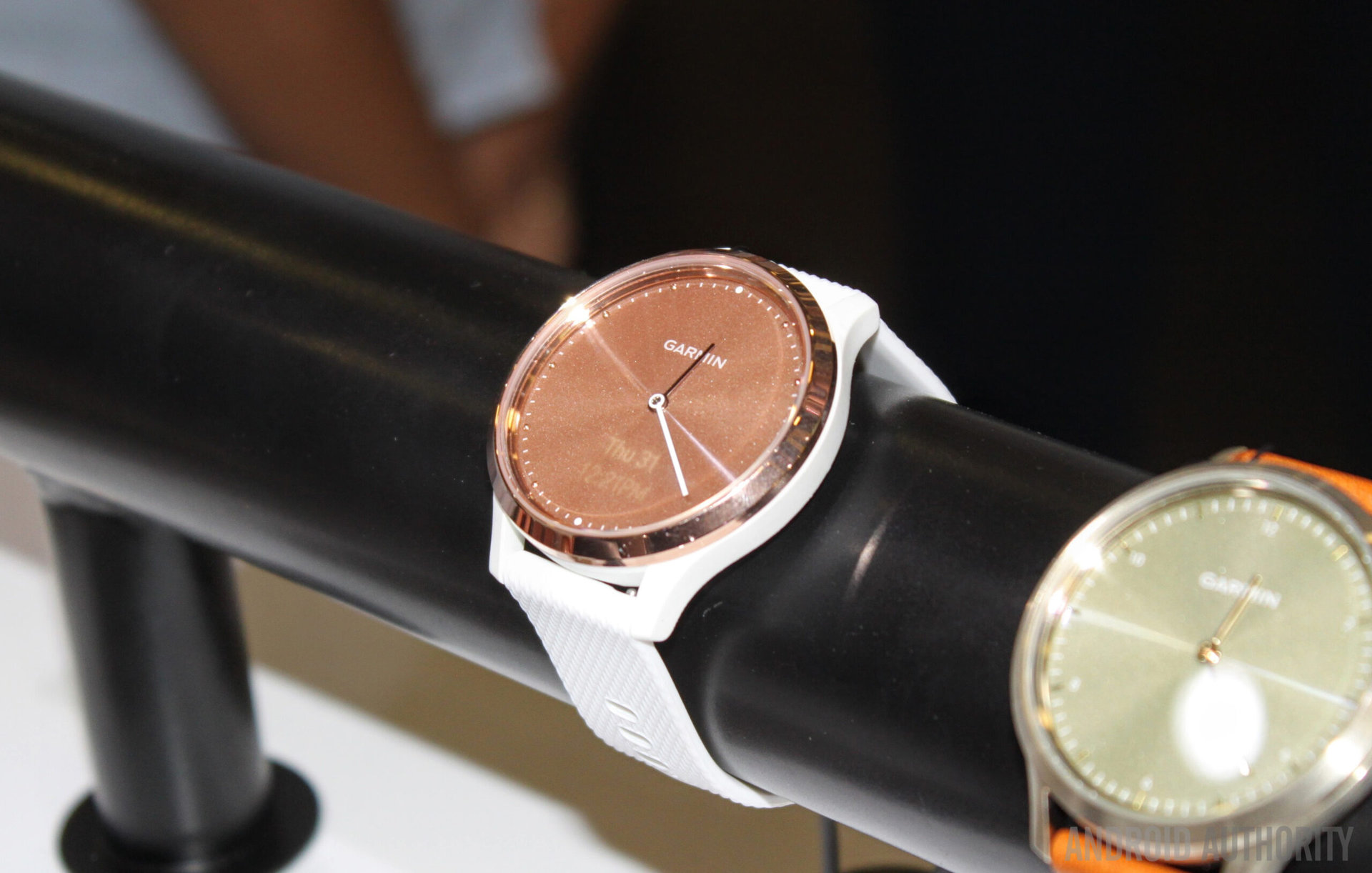
The vívomove HR has another exciting facet that the vívoactive 3 lacks (though, admittedly, it’s completely by-design) and that’s in its watch hands. These pointers can temporarily swivel out of position when the digital portion of the screen lights up; it’s a super slick effect, a great amalgamation of old and new tech, that caught a number of peoples’ eyes while the watch was on display.
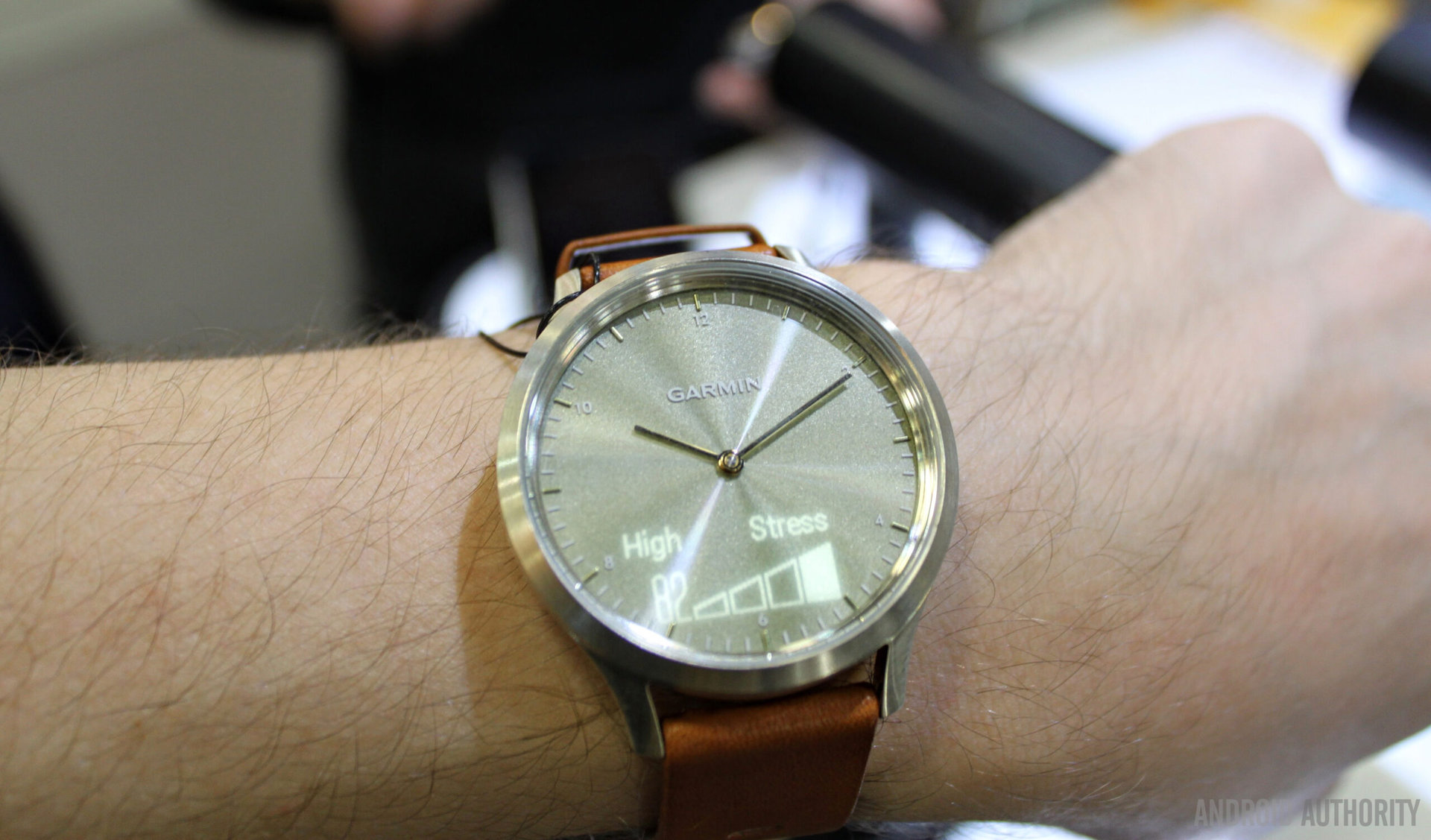
One problem that I did come across at conference was in waking the digital screen, however. This, I was told, is achieved by double tapping the watch face — but it took lots of random tapping to get the thing to actually wake up (like you can see in the photo above) on each of the three watches I tried. Perhaps this is still in development, or perhaps there’s a trick to it that I didn’t catch, but it’s worth bearing in mind.
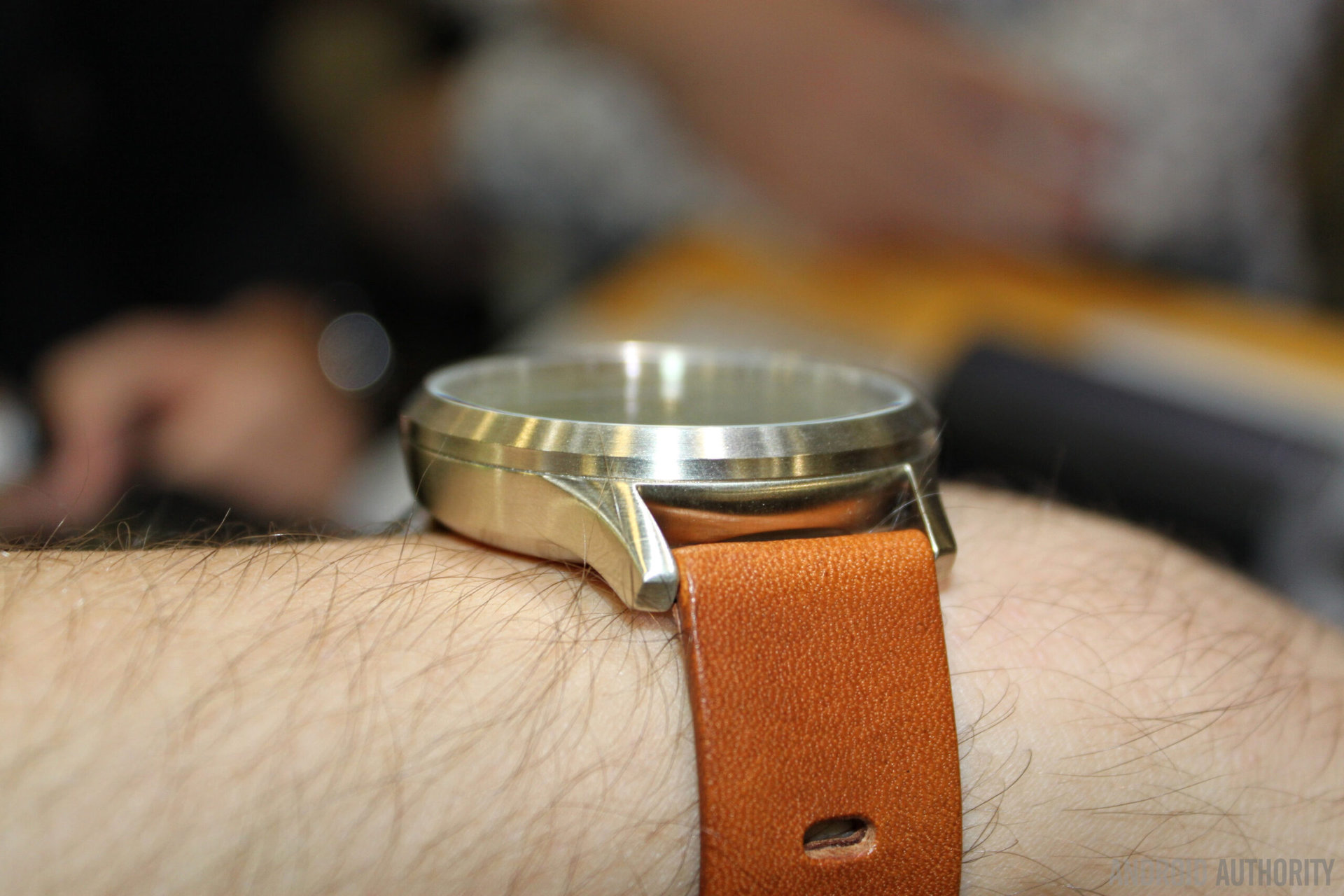
The vívomove HR is the product that I was most impressed by at Garmin’s event — and it’s probably one of the more impressive smartwatches I’ve come across to date. It looks cool, it’s comfortable, the operation is clever, its fitness features are robust, and its battery life may blow most of the competition out of the water.
The vívomove HR has a $199.99 RRP for the sport version, while the more premium unit with the leather strap comes in at $299.99. It will arrive in black, rose gold, black and silver (with brown leather strap) and gold (with brown leather strap) variants. We’ll let you know when as soon as Garmin announces the release date.